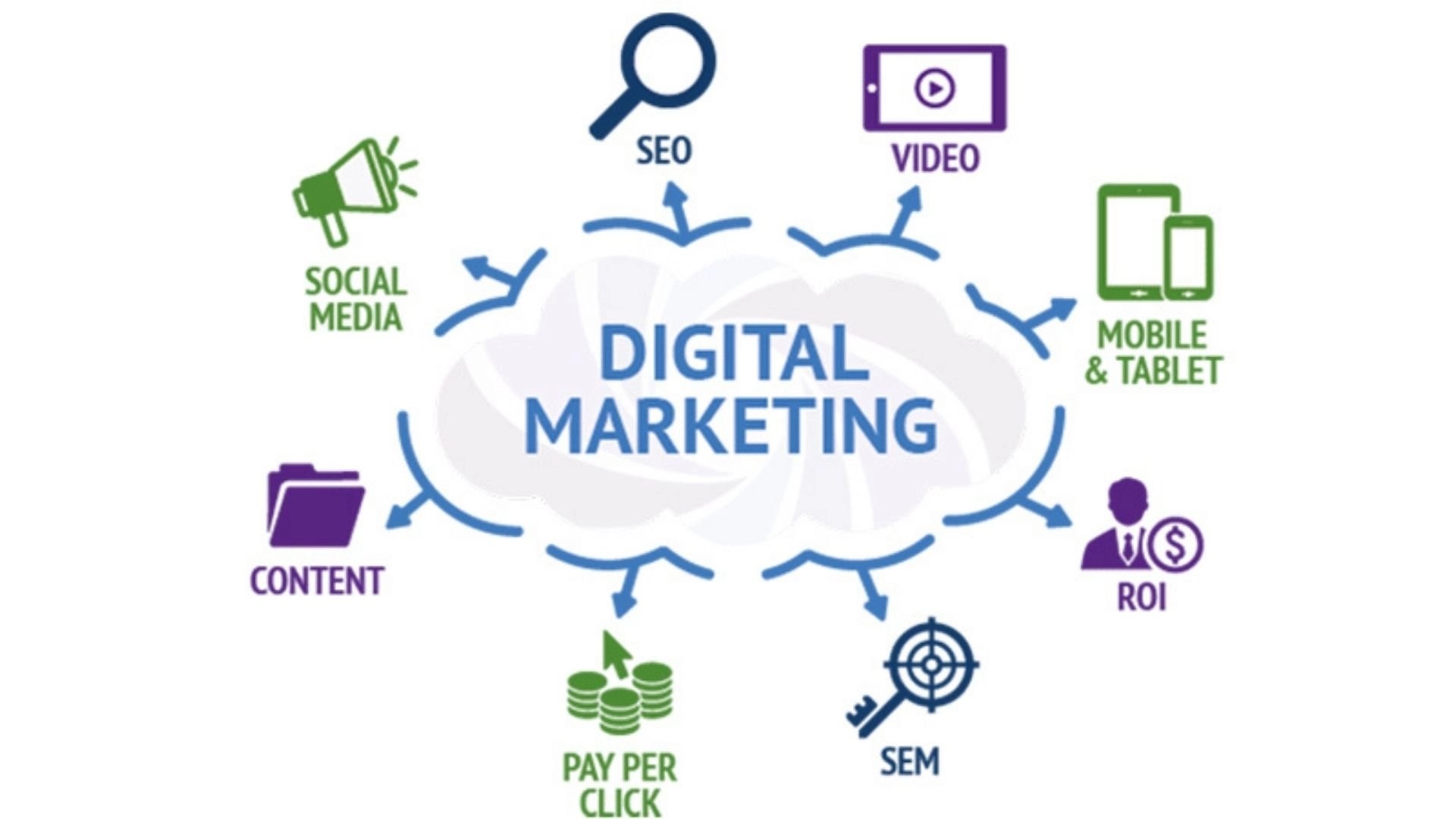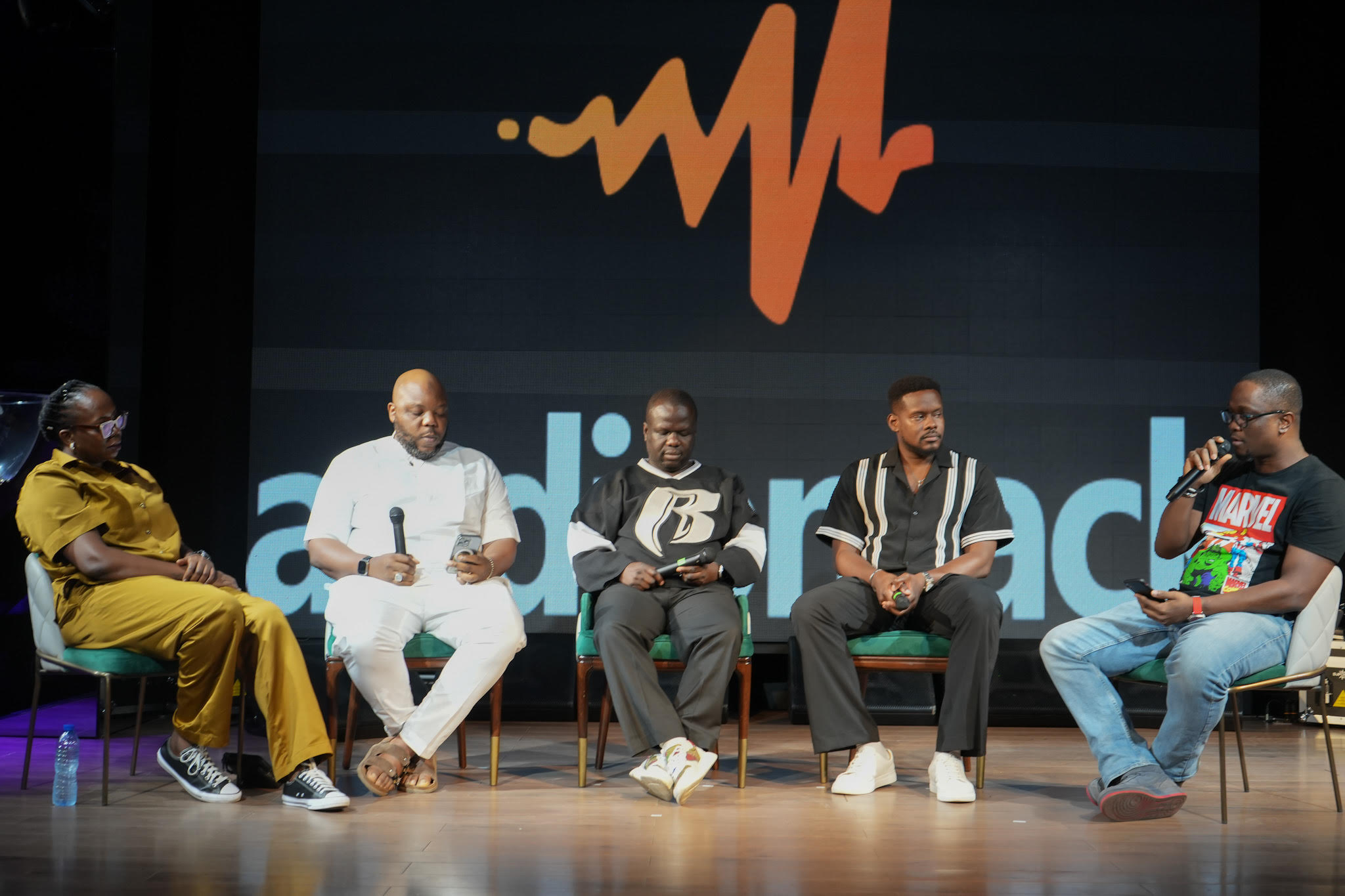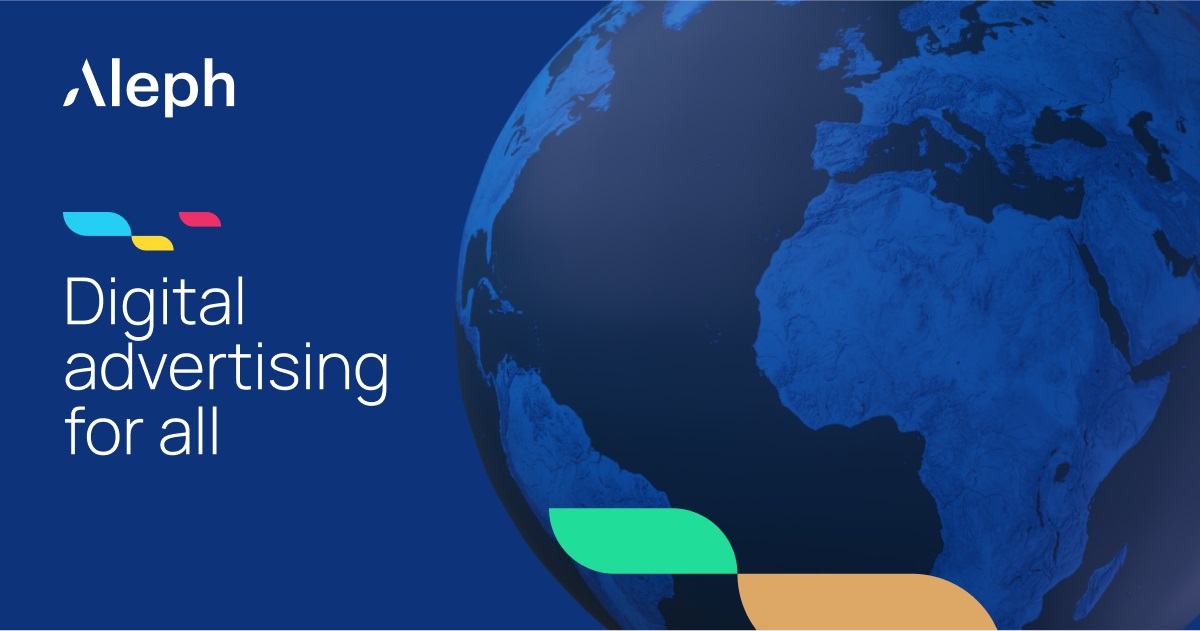Technology
Augmented Authenticity: How Snapchat and AR Are Helping to Redefine Brand-Customer Relationship

By Talia Klopper
It’s not just the way that brands promote their products and services or communicate their value that has changed over the last decade, but also where they do it. Driven by both advancements in technology and continuously changing consumer behaviour, marketing has undergone a dramatic transformation – shifting to a more digitally connected environment.
In fact, 60% of marketing is projected to be digital by the end of 2024, with a 10% increase in digital marketing spend recorded just between 2023 and 2024.
One thing that remains unwavering and unchanged, however, is just how foundational building meaningful and authentic relationships with customers is to market your brand. A strong relationship with customers will always be paramount to any brand’s success as it forms the foundation of trust and loyalty between the two. Simply put – it doesn’t matter what you’re saying, or what the quality or relevance of your messaging is, if your customers don’t feel you’ve built an authentic connection with them they’re unlikely to even listen to what it is you have to say.
According to the latest marketing statistics from Linearity, 81% of consumers require trust in a brand before purchasing them, 90% say that brand loyalty is crucial to purchasing decisions, and around 59% of consumers prefer purchasing new products from brands they are already familiar with. Authentic brand-customer relationships engender empathy, understanding, and mutual respect which in turn leads to increased brand advocacy, repeat purchases and recommendations.
It’s clear that investing in authentic relationships enhances brand perception, ultimately driving sustainable business growth. But, relationships take time to build, and in a more digital environment where face-to-face meetings, facial expressions and first impressions have been replaced with photos, posts and video screens, it can be tricky to do so. And, while social media platforms offer brands a way to digitally represent themselves and communicate to customers, they’re also a communication vehicle that limits a brand’s ability to personalise that communication as you’re trying to speak to as wide an audience as possible.
Luckily, there’s one platform that offers a unique opportunity to engage with customers on a personal level and foster deeper and more authentic relationships through community building – Snapchat.
Unlike traditional social media platforms where interactions occur with a wide and varied audience, Snapchat offers a more intimate setting. Despite being long misunderstood as just another social media platform, Snapchat differentiates itself by enabling an environment of closeness and authenticity as users instead curate their friend list to whom their Snaps are shared, creating a network of individuals they know and trust. As such, tapping into this more personal space in an engaging and meaningful way could be key to enhancing customer experiences, personalising interactions, and deepening brand engagement.
Leveraging Snapchat’s most unique feature – Augmented Reality
Taking this sense of intimacy to the next level is Snapchat’s integration of Augmented Reality (AR) through a wide selection of lenses which users can play around with including AR facial filters, location-based overlays, countdown timers, quiz generators and so much more.
You might wonder how this capability can help a brand foster deeper connectivity and relationships with customers but just imagine the possibilities. Imagine a furniture store brand that builds an AR Lens that allows customers to see what a small selection of sale items might look like within their own space at home just by looking through the camera of their mobile phone, or, an optical retail chain enabling customers to try on different designs, styles and colours of glasses and sunglasses wherever they are and whenever they want.
By superimposing digital information onto the real world around you, placing virtual objects into the real world and turning it into a digital interface, this immersive technology is a powerful marketing tool that is already playing a key role in consumers’ perception of brands, confidence in the quality of a product, and their purchasing decisions.
A recent Snap Inc study, in collaboration with MAGNA Media Trials, found that AR represents an opportunity for brands to reach the right audience when it matters most. According to the study, consumers found AR ads to be 5% more informative than pre-roll ads and 6% more useful than pre-roll ads. Additionally, AR ads helped consumers feel closer to the brand, got them excited about the brand, and helped to establish positive opinions of the brand by leading consumers to think of the brand as more up-to-date. Interactive Entertainment AR Lenses in particular were observed to boost memorability by 9%, enabling consumers to see the brand as 9% more innovative and 8% more unique than brands who don’t use them.
Essentially, AR ads are helping to capture consumers’ attention. But, that’s not where the benefits of AR ends.
Transforming attention into action
While AR can play a significant role in captivating an audience, AR marketing can also translate directly into action. Whether this manifests itself in increased website traffic, app downloads, or boosting sales, brands can leverage Snapchat’s AR capabilities to achieve tangible business objectives.
The Snap Inc study found that not only are AR ads impactful throughout the branding funnel, but most importantly, they drive intent to take the next step in the purchasing journey. For example, Shoppable AR Lenses compel consumers at the end of their journey, driving search intent up by 8%, World Facing AR Lenses impacts those in the middle of the journey and results in an 8% higher purchase intent and 7% increase in brand relevance, and Front-Facing AR Lenses help lift brand image for those closer to purchase with a 5% higher lift in brand uniqueness and 4% lift in relevancy.
These immersive, engaging, memorable and shareable experiences are allowing users to engage with brands in ways that help not just build relationships but long-term relationships in an age where authenticity and engagement reign supreme. By creating personalised AR experiences on Snapchat, brands can transcend traditional marketing boundaries and reach their customers where they are.
So, it’s time for brands to pivot from only shouting into the void of social media and instead speak directly to their audience, with intention, in their language.
Talia Klopper is the Partner Director for Snapchat Sub-Saharan Africa at Aleph
Technology
Telecom Operators to Issue 14-Day Notice Before SIM Disconnection

By Adedapo Adesanya
Telecommunications operators in Nigeria will now be required to give subscribers a minimum of 14 days’ notice before deactivating their SIM cards over inactivity or post-paid churn, following a fresh proposal by the Nigerian Communications Commission (NCC).
The proposal is contained in a consultation paper, signed by the Executive Vice Chairman and Chief Executive Officer of the NCC, Mr Aminu Maida, and titled Stakeholders Consultation Process for the Telecoms Identity Risks Management Platform, dated February 26, 2026, and published on the Commission’s website.
Under the proposed amendments to the Quality-of-Service (QoS) Business Rules, the Commission said operators must notify affected subscribers ahead of any planned churn.
“Prior to churning of a post-paid line, the Operator shall send a notification to the affected subscriber through an alternative line or an email on the pending churning of his line,” the document stated.
It added that “this notification shall be sent at least 14 days before the final date for the churn of the number.”
A similar provision was proposed for prepaid subscribers. According to the Commission, operators must equally notify prepaid customers via an alternative line or email at least 14 days before the final churn date.
Currently, under Section 2.3.1 of the QoS Business Rules, a subscriber’s line may be deactivated if it has not been used for six months for a revenue-generating event. If the inactivity persists for another six months, the subscriber risks losing the number entirely, except in cases of proven network-related faults.
The new proposal is part of a broader regulatory review tied to the rollout of the Telecoms Identity Risk Management System (TIRMS), a cross-sector platform designed to curb fraud linked to recycled, swapped and barred mobile numbers.
The NCC explained in the background section of the paper that TIRMS is a secure, regulatory-backed platform that helps prevent fraud stemming from churned, swapped, barred Mobile Station International Subscriber Directory Numbers in Nigeria.
It said this platform will provide a uniform approach for all sectors in relation to the integrity and utilisation of registered MSISDNs on the Nigerian Communications network.
In addition to the 14-day notice requirement, the Commission also proposed that operators must submit details of all churned numbers to TIRMS within seven days of completing the churn process, strengthening oversight and accountability in the system.
The consultation process, which the Commission said is in line with Section 58 of the Nigerian Communications Act 2003, will remain open for 21 days from the date of publication. Stakeholders are expected to submit their comments on or before March 20, 2026.
Technology
Silverbird Honours Interswitch’s Elegbe for Nigeria’s Digital Payments Revolution

By Modupe Gbadeyanka
The founder of Interswitch, Mr Mitchell Elegbe, has been honoured for pioneering Nigeria’s digital payments revolution.
At a ceremony in Lagos on Sunday, March 1, 2026, he was bestowed with the 2025 Silverbird Special Achievement Award for shaping Africa’s financial ecosystem.
The Silverbird Special Achievement Award recognises individuals whose innovation, vision, and sustained impact have left an indelible mark on society.
Mr Elegbe described the award as both humbling and symbolic of a broader journey, saying, “This honour represents far more than a personal milestone. It reflects the courage of a team that believed, long before it was fashionable, that Nigeria and Africa could build world-class financial infrastructure.”
“When we started Interswitch, we were driven by a simple but powerful idea that technology could democratise access, unlock opportunity, and enable commerce at scale.
“This recognition by Silverbird strengthens our resolve to continue building systems that empower businesses, support governments, and expand inclusion across the continent,” he said when he received the accolade at the Silverbird Man of the Year Awards ceremony attended by several other dignitaries, whose leadership and contributions continue to shape national development and industry transformation.
In 2002, Mr Elegbe established Interswitch after he was inspired by a bold conviction that technology could fundamentally redefine how value moves within and across economies.
Under his leadership, the company has evolved into one of Africa’s foremost integrated payments and digital commerce companies, powering financial transactions for governments, banks, businesses, and millions of consumers.
Today, much of Nigeria’s electronic payments ecosystem traces its foundational architecture to the systems and rails established under his leadership.
“Mitchell’s journey is inseparable from Nigeria’s digital payments evolution. His foresight and resilience helped establish foundational infrastructure at a time when the ecosystem was still nascent.
“This recognition affirms not only his personal legacy, but the broader impact of Interswitch in enabling commerce and strengthening financial systems across Africa,” the Executive Vice President and Group Marketing and Communications for Interswitch, Ms Cherry Eromosele, commented.
Technology
SERAP Seeks FCCPC Probe into Big Tech’s Impact on Nigeria’s Digital Economy

By Adedapo Adesanya
The Socio-Economic Rights and Accountability Project (SERAP) has called on the Federal Competition and Consumer Protection Commission (FCCPC) to urgently investigate major global technology companies over alleged abuses affecting Nigeria’s digital economy, media freedom, privacy rights and democratic integrity.
In a complaint addressed to the chief executive of FCCPC, Mr Tunji Bello, the group accused Google, Meta (Facebook), Apple, Microsoft (Bing), X, TikTok, Amazon and YouTube of deploying opaque algorithms and leveraging market dominance in ways that allegedly undermine Nigerian media organisations, businesses, and citizens’ rights.
The complaint, signed by SERAP Deputy Director, Mr Kolawole Oluwadare, urged the commission to take measures necessary to urgently prevent further unfair market practices, algorithmic influence, consumer harm and abuses of media freedom, freedom of expression, privacy, and access to information.”
SERAP also asked the FCCPC to convene a public hearing to investigate allegations of algorithmic discrimination, data exploitation, revenue diversion, and anti-competitive conduct involving the tech giants.
According to the organisation, dominant digital platforms now act as private gatekeepers of Nigeria’s information and business ecosystem, wielding enormous influence over public discourse and market competition without sufficient transparency or regulatory oversight.
“Millions of Nigerians rely on these platforms for news, information and business opportunities,” SERAP stated, warning that opaque algorithms and offshore revenue extraction models pose both economic and human rights concerns.
The group argued that the alleged practices threaten media plurality, consumer protection, privacy rights, and the integrity of Nigeria’s forthcoming elections.
SERAP pointed to actions taken by the South African Competition Commission, which investigated Google over alleged bias against local media content, adding that the South African probe reportedly resulted in measures including algorithmic transparency requirements, compliance monitoring and financial remedies.
SERAP urged the FCCPC to take similar steps to safeguard Nigerian media and businesses.
The organisation maintained that if established, the allegations could amount to violations of Sections 17 and 18 of the Federal Competition and Consumer Protection Act (FCCPA), which prohibit abuse of market dominance and anti-competitive conduct.
SERAP stressed that the FCCPC has statutory authority to investigate and sanction conduct that substantially prevents, restricts or distorts competition in Nigeria.
It also warned that failure by the Commission to act promptly could prompt the organisation to pursue legal action to compel regulatory intervention.
Citing concerns reportedly raised by the Nigerian Press Organisation (NPO), SERAP said big tech companies have fundamentally altered Nigeria’s information environment, creating what it described as a structural imbalance of power that threatens the sustainability of professional journalism.
Among the allegations listed are: Algorithms controlled outside Nigeria determining content visibility, monetisation of Nigerian news content without proportionate reinvestment, offshore extraction of advertising revenues, limited discoverability of Nigerian websites and platforms, and lack of transparency in ranking and recommendation systems.
SERAP argued that declining revenues in the Nigerian media industry have led to shrinking newsrooms, closure of bureaus, and the emergence of news deserts, weakening journalism’s constitutional role in democratic accountability.
The organisation further warned that algorithmic opacity and data-driven micro-targeting could influence voter exposure to information ahead of Nigeria’s forthcoming elections, raising concerns about electoral fairness and transparency.
-

 Feature/OPED6 years ago
Feature/OPED6 years agoDavos was Different this year
-
Travel/Tourism10 years ago
Lagos Seals Western Lodge Hotel In Ikorodu
-

 Showbiz3 years ago
Showbiz3 years agoEstranged Lover Releases Videos of Empress Njamah Bathing
-

 Banking8 years ago
Banking8 years agoSort Codes of GTBank Branches in Nigeria
-

 Economy3 years ago
Economy3 years agoSubsidy Removal: CNG at N130 Per Litre Cheaper Than Petrol—IPMAN
-

 Banking3 years ago
Banking3 years agoSort Codes of UBA Branches in Nigeria
-

 Banking3 years ago
Banking3 years agoFirst Bank Announces Planned Downtime
-

 Sports3 years ago
Sports3 years agoHighest Paid Nigerian Footballer – How Much Do Nigerian Footballers Earn


















